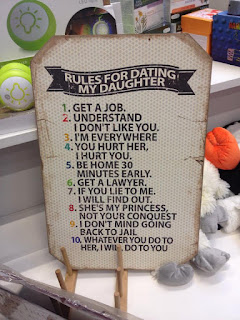This post is part of a virtual teach-in in commemoration of UBC Sexual Assault Awareness month. See the
#UBCSAAM hastag on twitter.
I suggested
last week that often there will be grounds for institutional action in response to allegations of sexual assault, even if no criminal charges are filed or a criminal conviction cannot be reached.
One common response is that a policy that permits action in response to an assault that can't be proven in court is unfair to the alleged perpetrator. (I received several thoughts along these lines from members of the public at large in response to my op-ed.) I think this is a mistake—one that may be motivated by a failure to take seriously my suggestion that we sometimes have
genuine knowledge, even when we can't prove something in court. I do not advocate institutional action in the absence of evidence or knowledge; I don't think, for example, that universities should expel students merely because they suspect them of being rapists. My proposal is that we should act on our knowledge. If the university knows that someone is attacking other students, it should take action to protect them. People sometimes forget that it's possible to have such knowledge without criminal trials, but it is obviously true. (I know that I walked my dog yesterday morning, even though I'd probably have a pretty difficult time proving it in court.) This was the core thought behind my
Vancouver Sun op-ed—just because something is a criminal offence doesn't mean that law enforcement is the only entity that can or should be involved.
I think it's helpful to compare other criminal actions—sexual assault activates some weird patterns of intuitions. Suppose a student, Shen, has a habit of punching other students in the face. I'm assigning my students to work together in small groups on an assignment, and Paksima expresses a desire not to work with Shen, because she's afraid that he'll punch her in the face again. I've never seen Shen punch anybody in the face—and when I ask him about Paksima's broken nose, he says he doesn't know how she got it, but speculates that maybe she broke her own nose to get him into trouble.
Depending on the details of the case, I think I might, under these circumstances, be able to know what has happened. While it is literally a case of 'he said–she said', there are possible such cases where one can know who is being honest and who is lying. But let's suppose for the purpose of argument that we're looking at a version of the case where I can't have genuine knowledge about how Paksima's nose ended up broken. Maybe for some reason the possibility that it's an elaborate and costly framing job is really live. I still face the question, what should I do about this situation? Paksima is asking not to be required to work with Shen, and she's citing grounds of her own personal safety.
I don't think anyone would take very seriously the idea that this should be my response: "Paksima, punching people in the face is a criminal matter, not an academic one. You should take your concerns to the RCMP; if and when Shen is convicted of criminal assault, I'll take the allegation into consideration, but unless and until that happens, I'm going to assume that nothing improper has happened. To do otherwise wouldn't be fair to Shen."
This hypothetical response is ludicrously callous; but it is exactly analogous to a widespread idea about what universities should do about sexual assault. If you think I shouldn't ignore unproven allegations about getting punched in the face, then it's hard for me to see why you shouldn't think the same about unproven allegations about sexual assault.
None of this is to deny that there are difficult questions to ask about what procedures should govern just what steps should be taken, given particular bodies of evidence. Returning to the case of sexual assault, I do think that if a university knows that a student is sexually assaulting other students, he should be expelled. But I don't think it's at all a trivial matter to put institutional frameworks in place to investigate allegations and establish appropriate responses. That is to say, I don't think it's an easy matter to figure out what appropriate sexual assault policies are.
I also want to emphasize that
punitive actions are only one part of what should be covered in a sexual assault policy. A sexual assault policy that focuses only on what standards of proof would justify what kind of punishment does so at the neglect of the victims it is meant to protect. Victims of assault may need many things other than a procedure that might eventually punish their attackers. And many of the things universities can do to support alleged victims are non-punitive, and so do not require at all a high standard of proof. (I don't punish Shen by letting Paksima work in a different group, or referring her to medical services, based only on her allegation.) So another part of a university sexual assault policy—one even further disconnected from questions about law enforcement—should set out such non-punitive guidelines for how to care for alleged victims. A few such policies that come to mind are flexibility about classroom assignments, an ability to make changes to living arrangements, and access to counselling. No doubt there are many more things to add to this list.

